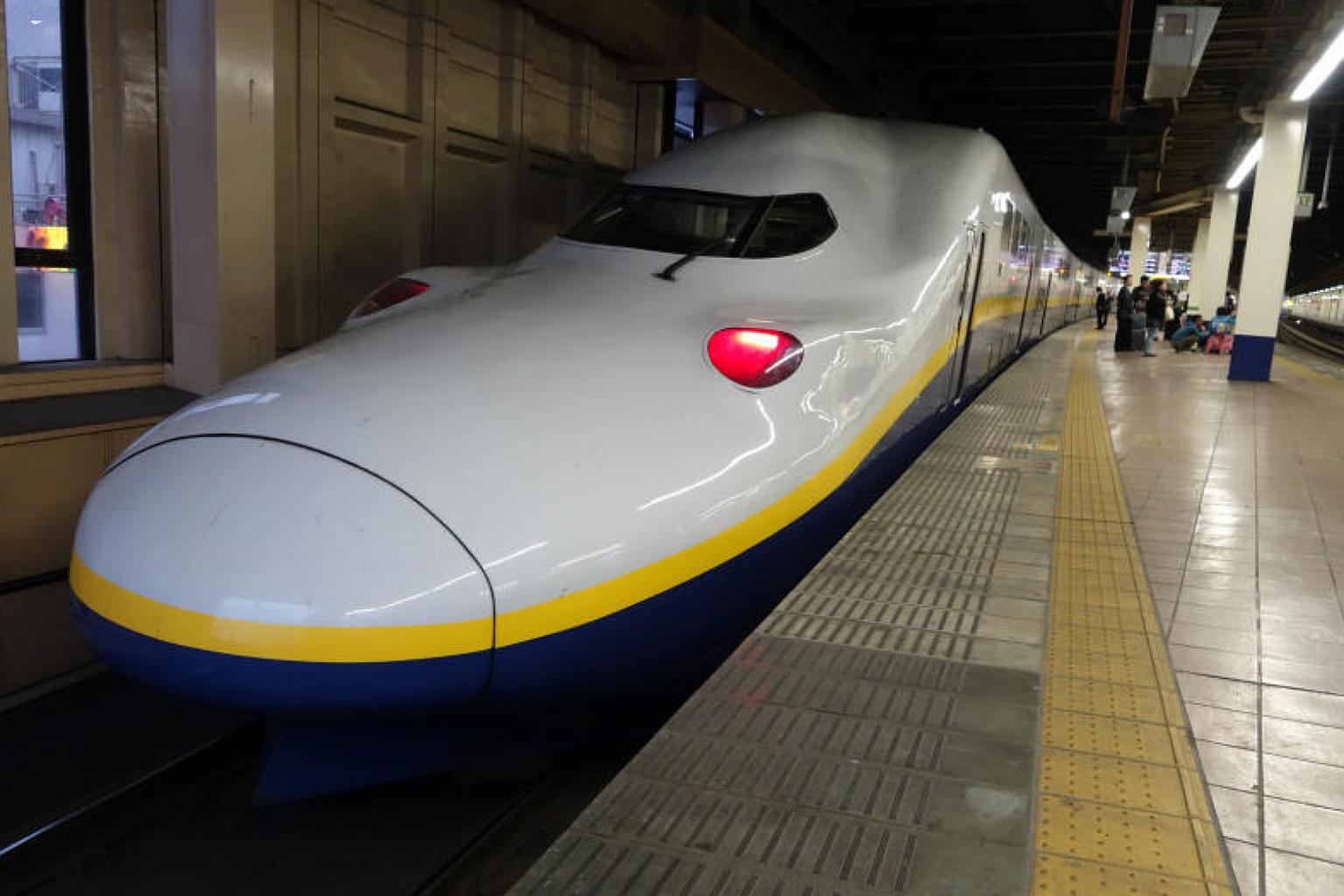Japan's train woes due to structural issues in ageing equipment, lack of young engineers
Sign up now: Get insights on Asia's fast-moving developments

Japanese trains, famed for their punctuality, have seen an increase in delays due to malfunctions such as power outages, the Nikkei Asian Review reported last month.
PHOTO: ST FILE
TOKYO - The recent woes that have gripped Japan's train networks are due to structural issues related to ageing equipment, as well as the national lack of young engineers, Transport Minister Keiichi Ishii said on Tuesday (Dec 19).
His comments came a week after a shinkansen bullet train was pulled out of service 3½ hours into its five-hour journey due to a crack in an undercarriage and an oil leak.
The steel frame of the undercarriage was just 3cm away from snapping into two, train operator West Japan Railway Company (JR West) said on Tuesday, admitting that this could have caused a major high-speed derailment.
This was the shinkansen's first serious safety breach in over 50 years.
In another incident last Saturday, three train services in Yokohama, half an hour south of Tokyo, were suspended for as long as seven hours after an overhead wire snapped.
Mr Ishii told reporters after a Cabinet meeting on Tuesday: "Besides structural complications in the ageing equipment, contributing to the spate of recent incidents is the increasing lack of young engineers who want to do such jobs."
He added that the ministry will convene an expert panel to look into countermeasures to combat the structural problems related to ageing, and to discuss how to woo more young engineers.
Public broadcaster NHK, quoting sources, reported on Tuesday that 348 billion yen (S$4.2 billion) will be allocated to the maintenance of the shinkansen in the budget for the next fiscal year.
The works will centre on three major lines in Hokkaido, Kyushu and Hokuriku. The latter connects Tokyo to Kanazawa in the north-west.
Meantime, the two train operators responsible for the recent service disruptions have apologised to the public.
At a news conference on Tuesday, JR West executive vice-president Norihiko Yoshie said the incident has "betrayed the absolute trust in the safety of the shinkansen".
JR West runs the shinkansen service Nozomi 34 that was pulled out of service last Monday on its way from Hakata station in Fukuoka in the south-west to the Tokyo station. The train would have covered the Osaka-Tokyo route which is Japan's busiest.
Mr Yoshie said that the crack had measured 16cm on the base and 14cm on the side of the steel frame of the undercarriage, which was manufactured by Kawasaki Heavy Industries in 2007.
An inspection that was done the night before the incident had not yielded any irregularities, said Mr Yoshie, adding that the company is now conducting a probe. The train was only grounded three hours after the first red flag - a burning smell - was sounded by the conductor.
The East Japan Railway Company (JR East) has also apologised for last Saturday's incident after the overhead wire snapped at about 10.55am local time. Full service was resumed only at 5.40pm - and passengers on trains stuck between stations had to disembark and walk along the tracks.
Japanese trains, famed for their punctuality, have seen an increase in delays due to malfunctions such as power outages, the Nikkei Asian Review reported last month.
"Railway companies are popular employers, but the businesses that handle such tasks as building and inspecting electrical equipment have trouble attracting young people to take on what is seen as gruelling work," the Nikkei said in its Nov 19 report.
It added that the problem has been exacerbated by the many veterans who have reached retirement age, resulting in the inadequate transfer of know-how between generations.


